CAPLA faculty, students and alumni create projects and other work that are wide-ranging and far-reaching—always with an eye towards a more sustainable built environment.
View summaries and image galleries of this dynamic work:
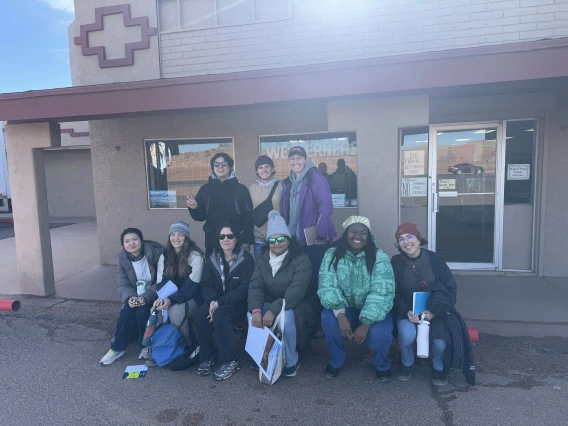
CAPLA Students Visit Tuba City
Senior Lecturer Laura Carr led 11 Master of Architecture students to Tuba City, Navajo Nation, as part of her ARC 510E Community Studio course. Students engaged with local officials, explored potential project sites, and immersed themselves in the community. Carr emphasized the importance of working with Tribal communities, while students reflected on the value of adaptability, relationship-building, and inclusive, community-driven design.
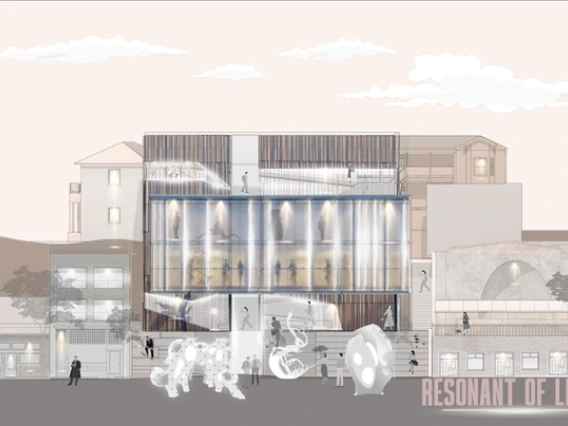
CAPLA students reimagine accessible architecture through Universal Design
Bachelor of Architecture students were recognized in the 2024 AGM Universal Design Student Awards for innovative projects that centered empathy, accessibility, and the human experience. Winning designs by Taranm Akbary and Sadey Bowles reimagined inclusive spaces in Bisbee, showcasing how Universal Design can elevate both creativity and community impact.
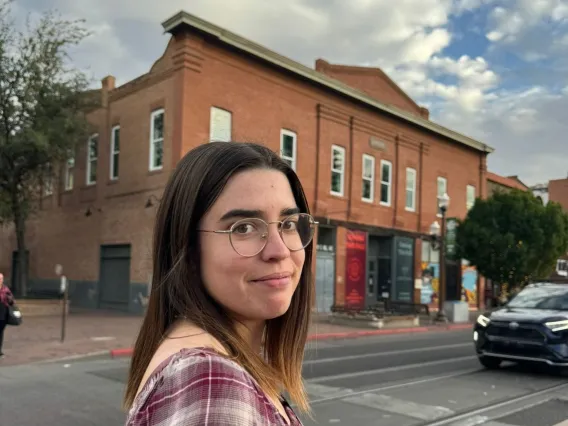
MS.Arch Grad’s Research Award Signals Bright Future
As Montse Estrany Bover graduates with a Master of Science in Architecture from CAPLA, she leaves with a prestigious research award for her thesis on Catalunya’s historic agricultural landscapes. Now working at an architecture firm in Spain, she plans to pursue a Ph.D. to continue blending research and practice.
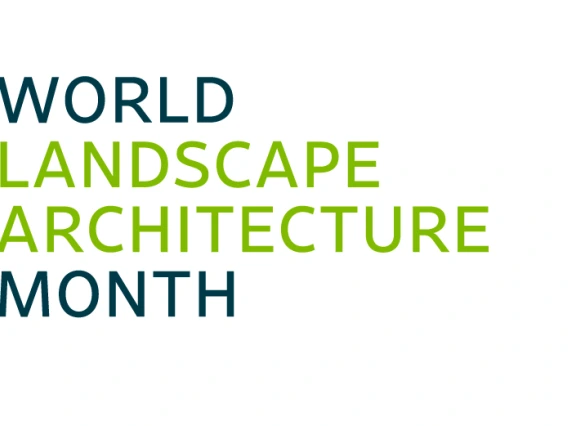
CAPLA celebrates World Landscape Architecture Month
In celebration of World Landscape Architecture Month, CAPLA and the Arizona Chapter of the American Society of Landscape Architects student chapter are taking over the Arizona ASLA Instagram account in April.
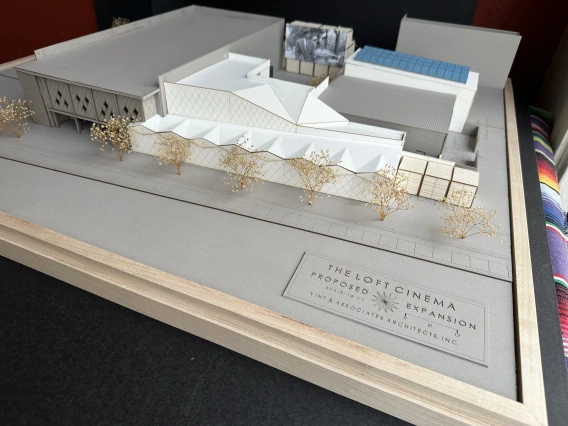
Professor Bob Vint designs The Loft Cinema expansion
Tucson’s cherished independent nonprofit art-house theater, The Loft Cinema, is expanding—and leading the project is Bob Vint, assistant professor of practice at the School of Architecture.
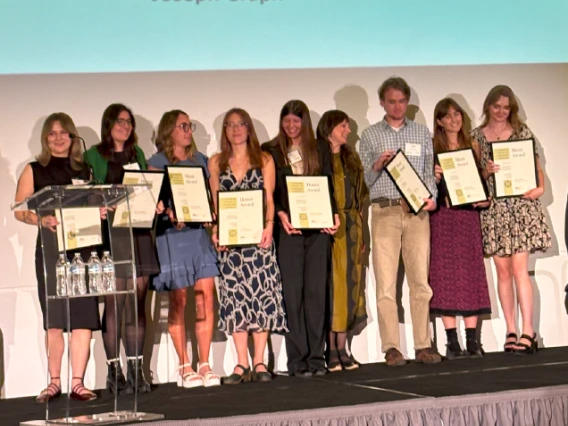
Landscape architecture students shine at AZ ASLA Awards Gala, Expo
More than 40 landscape architecture students were recognized for showcasing exceptional talent and innovation during the Arizona Chapter of the American Society of Landscape Architects Awards Gala & Expo.
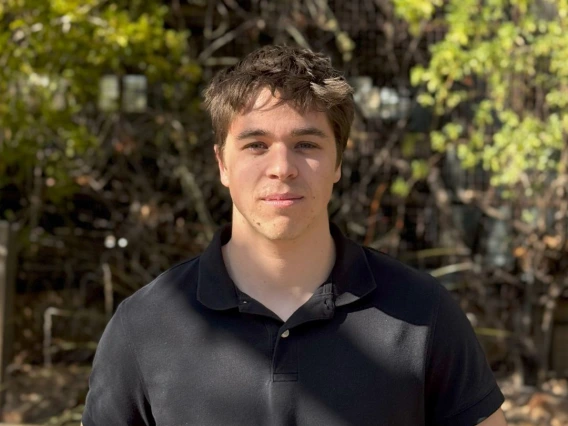
Ecological Cookbook: Gabriel Garcia ‘26 B.Arch
In ARC410F, Gabriel Garcia '26 B.Arch explored the intersection of architecture and ecology by designing with the Sonoran Desert’s spadefoot toad in mind. His ecological cookbook documents the species’ behavior, habitat needs, and environmental context, guiding a design approach rooted in sustainability and nonhuman-centered thinking.
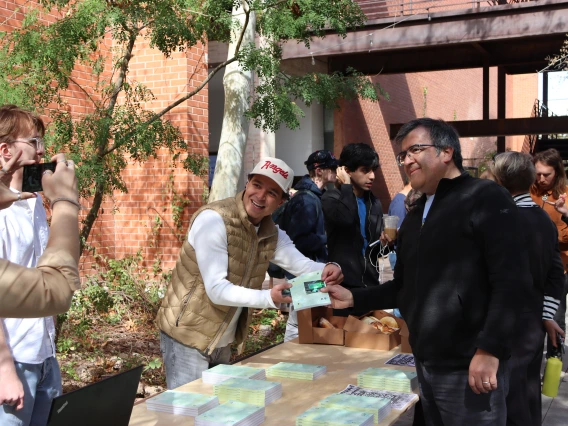
Exploring Change: CAPLA Students Publish Ninth Installment of [ABouT] Journal
The ninth edition of [ABouT] Journal, [ABouT] CHANGE, was created by CAPLA students to explore change in the Southwest through student projects, interdisciplinary work, and expert insights, while also giving students hands-on experience in publishing and collaboration.
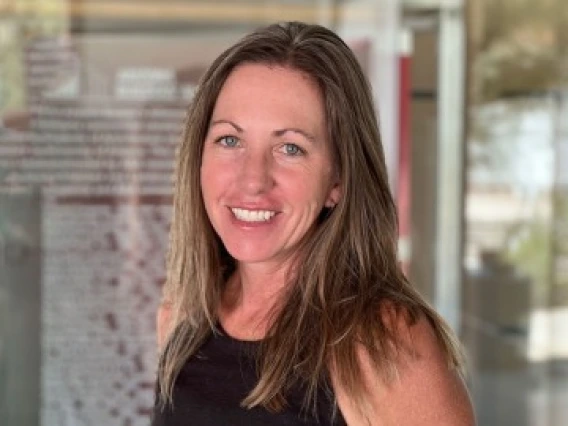
Laura Carr Receives AIA/ACSA Practice + Leadership Award for Community-Engaged Design
Laura Carr, senior lecturer in the School of Architecture and co-founder of the Native Peoples Design Coalition, has been honored with the AIA/ACSA Practice + Leadership Award by the Association of Collegiate Schools of Architecture (ACSA).
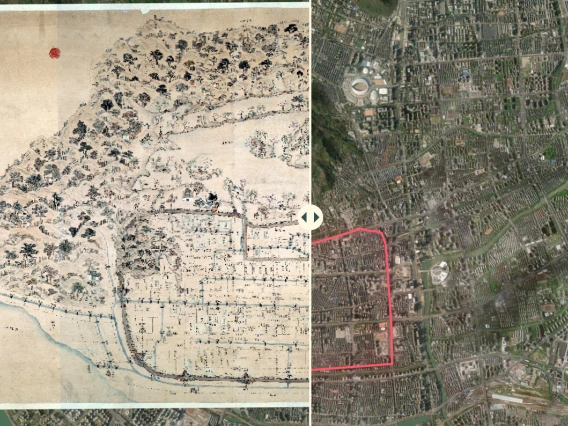
Interdisciplinary team named finalists in 2024 ArcGIS StoryMaps Competition
An interdisciplinary team of faculty and students from the College of Architecture, Planning, and Landscape Architecture (CAPLA) and the College of Humanities has been named a finalist in the international 2024 ArcGIS StoryMaps Competition.
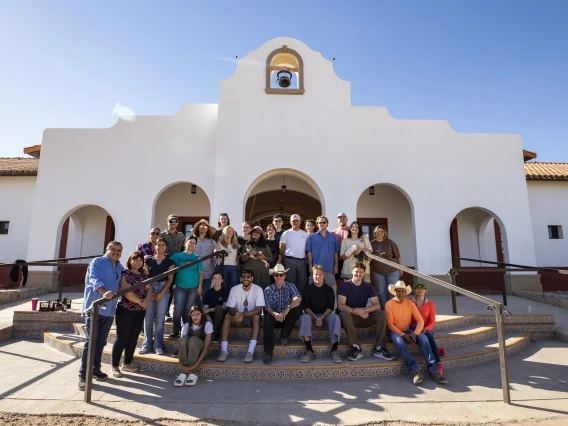
CAPLA, Rancho Feliz build a brighter future at the U.S.-Mexico border
Bob Vint, assistant professor of practice in the School of Architecture, collaborated with the Rancho Feliz Charitable Foundation to design La Hacienda Feliz, a traditional courtyard-style dormitory in Agua Prieta, blending his lifelong connection to Mexican culture with a commitment to addressing systemic poverty through architecture, while also providing CAPLA students an immersive experience in border communities and the challenges they face.
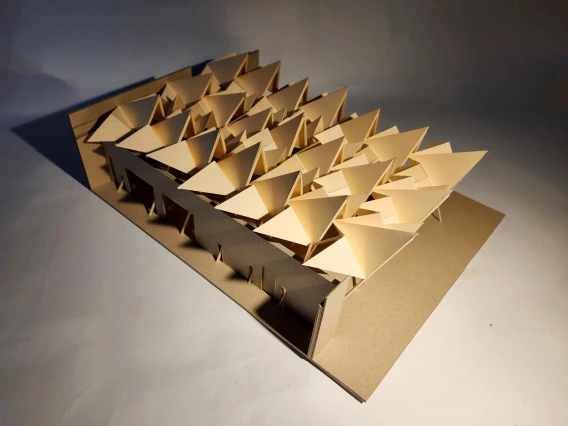
Gather Light: Ava Beveridge '28 & Katie Sweiven ‘28 B.Arch
For the ARC 201 Design Studio, students worked on defining a shadow caster threshold in a publicly accessible space. The "Gather Light" project was led by professors Christopher Domin, Oscar Lopez, Stefan Mostert, Mike Silver, and Siri Trumble.
